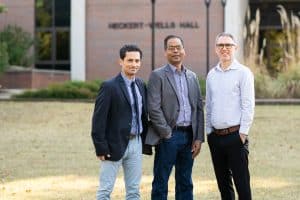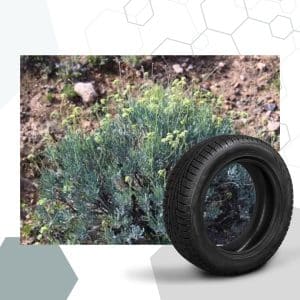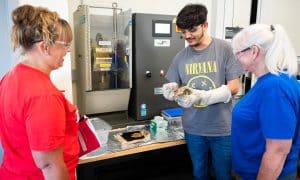Improvements brought to our world by plastics have also brought a few challenges, like how to more sustainably create them and how to more efficiently recycle them.
To that end, a team of researchers in the Kansas Polymer Research Center at Pittsburg State University are joining forces with a team of researchers at the University of Delaware and the University of Kansas in hopes of finding a solution.
The project is being funded by a $4 million grant from the National Science Foundation. UD will develop processes to transform “biomass” — agricultural byproducts — into commercially viable plastics, and to find ways to break them down efficiently.
KU, home to the Center for Environmentally Beneficial Catalysis, will be the lead entity on the project.
At PSU, KPRC Director Tim Dawsey will lead senior research personnel. That team will include Associate Professor of Chemistry Ram Gupta, who will mentor a master’s level student each year in the synthesis, characterization, and performance of biobased polymers; that student will collaborate with students at UD and KU.
Gupta also will develop research projects for undergraduates and high school students that create experiential learning opportunities, disseminate knowledge of a circular bioeconomy, and ideally generate interest in STEM careers.
“As it is only a two and a half-hour drive between Lawrence, Kansas, and Pittsburg, there will be ample opportunities for faculty and student interactions and hands-on cross-training sessions,” Dawsey said.
Their focus: one of the highest volume commercial polymers, polyethylene terephthalate, or PET, which is a versatile and broadly used polymer used in commodity packaging films, engineering resins, fibers, and soft-drink bottles.
“Given its enormous usage, substituting even small amounts with bioderived products can significantly impact the transition to renewable polymers,” Dawsey said.
This research will establish the foundations for a sustained partnership between KU, UD, and PSU to implement sustainable manufacturing in a circular economy.
“The specific goals are to develop novel catalysts and advanced manufacturing concepts, and deconstruct recycled plastics into precursors for reuse,” Gupta explained. “We will also develop and evaluate public policies that simultaneously drive rural economic growth and market penetration of the new materials.”
The project is supported by the National Science Foundation for four years.




